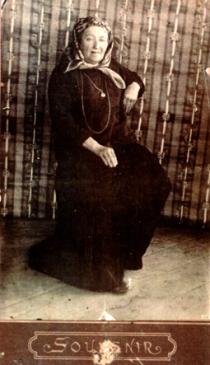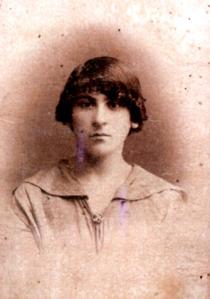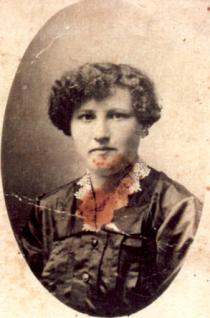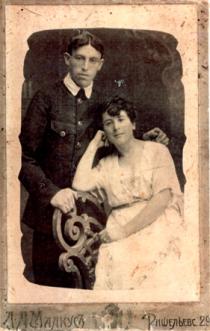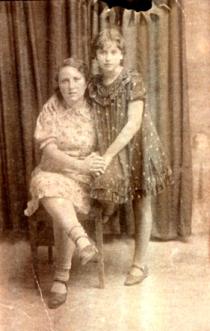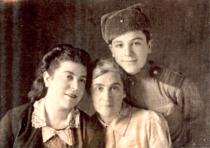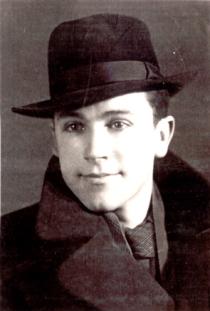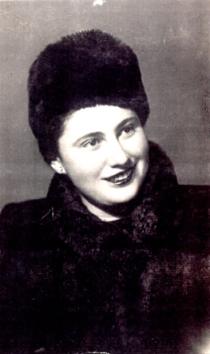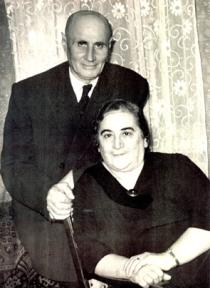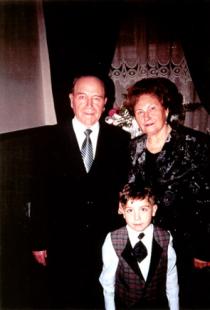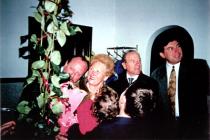This is my paternal grandmother Chaya Rudiak. This photo was taken approximately in 1910. Studio 'Souvenir' in Odessa. My grandmother was visiting in Odessa.
My family came from Zhabokrich village, Kryzhopol district, Vinnitsa region [300 km from Kiev]. I have dim memories about Zhabokrich since I only lived there in my early childhood and when at school I visited my grandmother once or twice. I don't have any information about the village before the revolution of 1917. I only remember it in the middle of 1930s. This was a picturesque village with a big park and a lake in the center. There was music playing and young people rowing, playing volleyball and football on the sports grounds in the park. We, kids, liked to lie in children's playground. Zhabokrich was a village, but it was more like a Jewish town since Jews constituted 80% of the whole population. Like everywhere else within the Pale of Settlement they lived in the center of the town and dealt in crafts and trade. Some had kitchen gardens and kept livestock. The rest of the population - they were Ukrainians, lived in the outskirts. They were farmers. I don't remember a synagogue in the town, but I believe there must have been one since my paternal grandmother Chaya attended a synagogue.
My father's parents Chaya and Aron Rudiak were born in Zhabokrich in 1860s. The family name of my ancestors sounds like a Ukrainian name and this shows how deeply intertwined were Ukrainians and Jews that had lived together for centuries. I don't know what grandfather Aron was doing before the revolution of 1917. He had died long before I was born. All I know is that his family was poor. Grandmother Chaya lived in a small house with thatched roof. Most of Ukrainian population lived in such houses at that time. My grandmother had a kitchen garden and kept poultry and a cow. Grandmother spoke Yiddish at home and switched to Ukrainian when talking to her Ukrainian neighbors. She spoke Ukrainian with a strong Jewish accent. She was religious and didn't work on Saturday. Her Ukrainian neighbor came to look after the cow and poultry on Saturday. I have dim memories about us, grandmother's children visiting our grandmother on Friday and sitting on a small wooden coach. Grandmother lit candles to greet Saturday and gave us delicious fresh milk. By 1941 all children had left their home and only came to visit their old mother occasionally. When Germans came to the village our poor grandmother tried to leave the village, but it was hard for her to walk and she returned. Grandmother Chaya and other Jews in Zhabokrich were shot in late July 1941. My grandmother's neighbors told us this story at the end of the war.
Grandmother Chaya had practically no education. Like many Jewish girls she didn't study, but she knew her prayers and could read in Hebrew. She got married at a very young age. My grandparents had 14 children. Only five survived: the others died as infants and two or three perished during pogroms during the Civil War.

